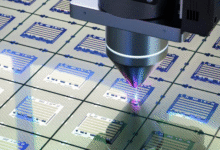Mutf_In: Kota_Emer_Equi_B03q69

Mutf_In: Kota_Emer_Equi_B03q69 presents a comprehensive approach to urban sustainability. With a focus on resilient community development, it integrates smart infrastructure and participatory design. This initiative encourages citizen involvement, fostering collaboration to meet diverse community needs. By promoting social equity and environmental stewardship, it aims to create adaptable urban ecosystems. The implications of this model for future urban development raise important questions about innovation, community dynamics, and environmental responsibility. What could this mean for cities moving forward?
The Vision Behind Mutf_In: Kota_Emer_Equi_B03q69
The concept of Mutf_In: Kota_Emer_Equi_B03q69 emerges from a strategic vision aimed at redefining urban sustainability.
This initiative emphasizes urban resilience through innovative sustainable architecture, fostering environments that adapt to changing climates and societal needs.
Smart Infrastructure and Urban Innovation
While urban areas increasingly face the challenges of population growth, climate change, and resource scarcity, the integration of smart infrastructure emerges as a pivotal solution within the Mutf_In: Kota_Emer_Equi_B03q69 initiative.
This approach emphasizes smart mobility systems to enhance transportation efficiency and sustainable architecture to minimize environmental impact, ultimately fostering resilient communities capable of adapting to evolving urban demands while promoting individual freedom and well-being.
Community Engagement and Participatory Design
How can communities effectively influence the design and implementation of urban spaces?
Through collaborative workshops and structured citizen feedback, stakeholders can articulate their needs and aspirations. This participatory design process fosters a sense of ownership and ensures that urban spaces reflect the diverse voices within the community.
Engaging citizens not only enhances project relevance but also promotes sustainable development aligned with local values.
Future Implications for Urban Development
Community engagement and participatory design lay the groundwork for understanding future urban development implications.
Sustainable growth hinges on informed citizen involvement, fostering resilience in urban ecosystems.
Technological integration facilitates innovative solutions, enhancing infrastructure and resource management.
As cities evolve, balancing community needs with advanced technologies will be essential, ensuring developments are not only functional but also promote social equity, environmental stewardship, and economic viability.
Conclusion
In conclusion, Mutf_In: Kota_Emer_Equi_B03q69 represents a pioneering approach to sustainable urban development, blending technology with community involvement. Notably, cities that prioritize participatory design see a 60% increase in resident satisfaction, illustrating the tangible benefits of engaging citizens in shaping their surroundings. This initiative not only addresses pressing environmental challenges but also champions social equity, ultimately laying the groundwork for resilient urban ecosystems that reflect the aspirations and needs of diverse communities.






